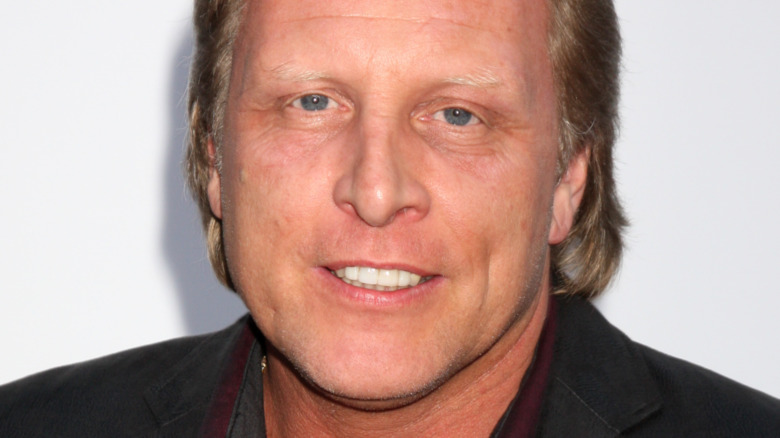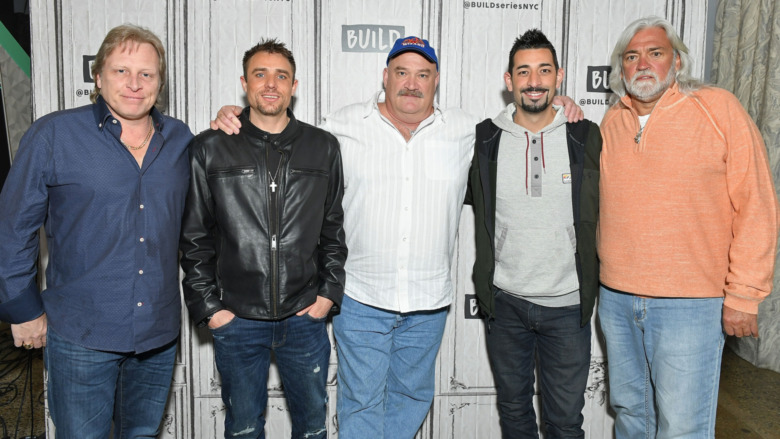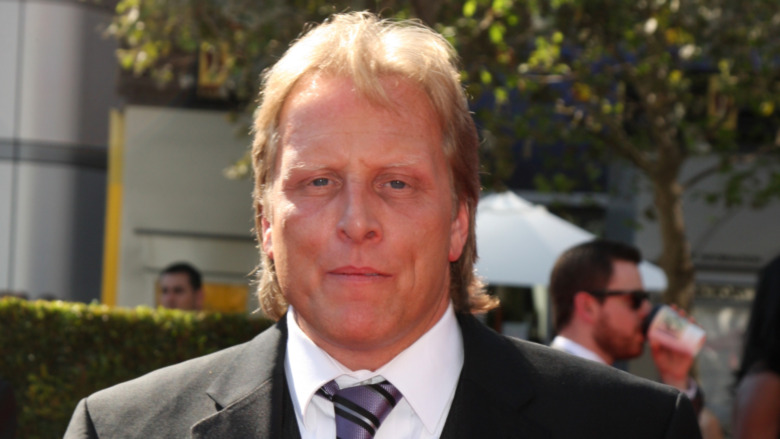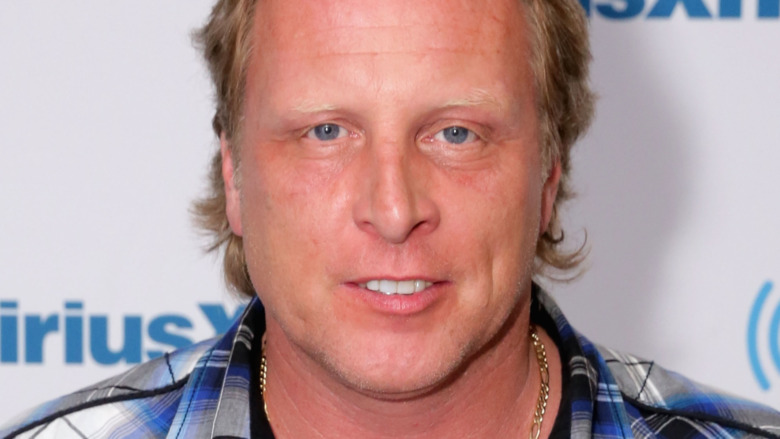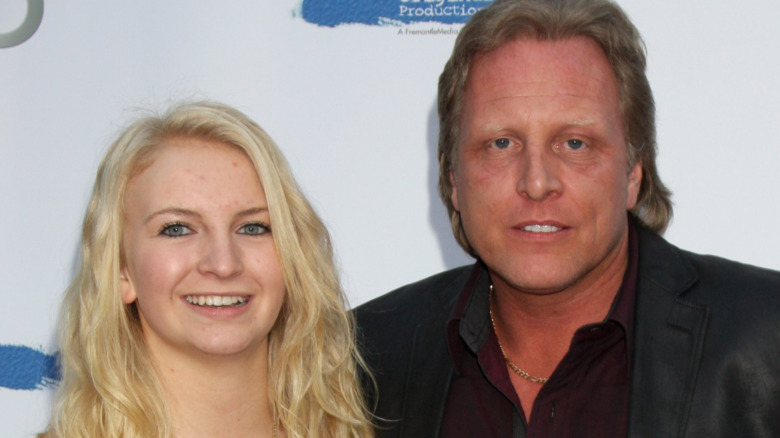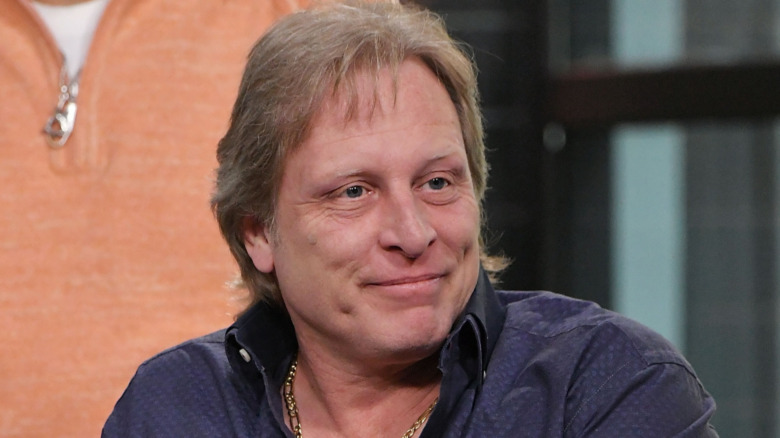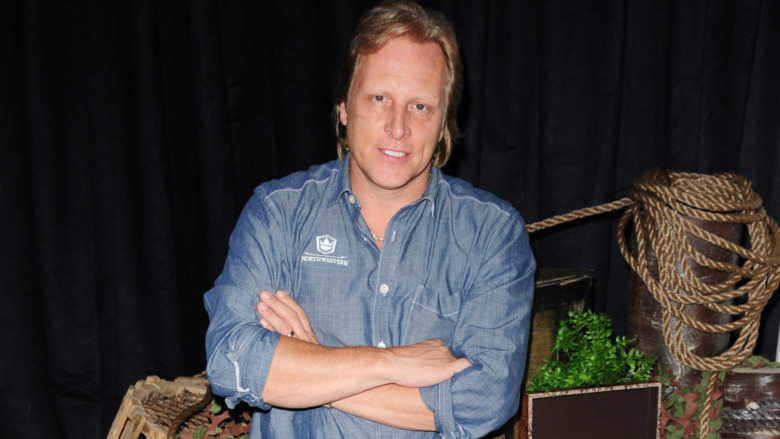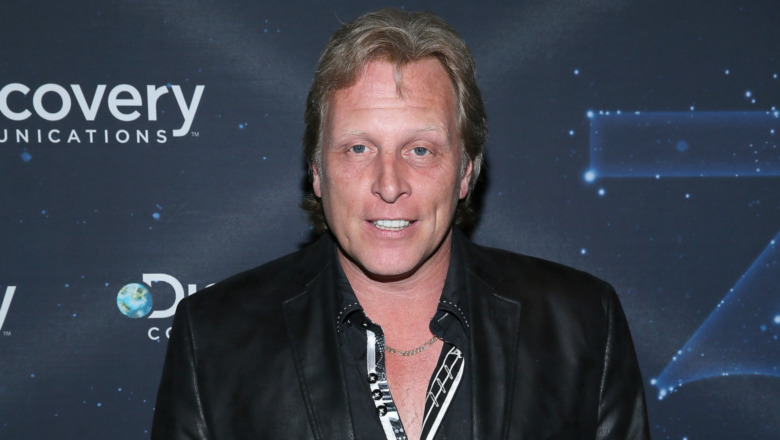Sig Hansen Opens Up About Deadliest Catch - Exclusive Interview
Sig Hansen was raised on the deck of a fishing boat, so it's safe to call him the saltiest dog. But even with his decades spent at sea, the longtime boss of the F/V Northwestern still characterizes the crab season depicted in the epic 17th season of the Discovery Channel hit "Deadliest Catch" as the most calamitous one he's ever endured.
Aside from the thorny COVID protocols that challenged any television production in 2020 and 2021, the real-life crabbing crews of the show that has endured unimaginable tragedy faced another seemingly insurmountable obstacle that had nothing to do with making a TV show. For the first time ever, the captains and their crews were fishing blind, without the usual survey data from the NOAA and Alaska Fish and Game about where the crab were hiding out. If that doesn't seem like a big deal to you, imagine if the catch from your casual fishing trip would directly impact the lives and families of everyone on board. Now multiply that by whatever math doing it in the arctic adds.
Hansen chats about it all, from the most grueling "Deadliest Catch" season ever, to grooming his daughter Mandy to take the reins, to his legacy and more, in this exclusive chat with Nicki Swift.
Why did Sig Hansen embrace the alliance system?
How are you doing, sir.
Good, just glad to be back. That's the bottom line.
So you're not at sea now, I trust.
No, we are in Seattle. The boat is here in Seattle, Washington being repaired, and then we'll get ready for next one, salmon tendering season, so she'll be busy all summer tendering salmon.
When does salmon tendering season start?
Usually around the middle of June. They'll go for all to two and a half, three months, something like that. And they're pumping fish from the sanders, the same boats. They pump fish out of there, and then they'll deliver the fish to the beach so that the fishing boats can stay out and perform.
That keeps you busy all summer long. So let me ask you a little bit about the new season "Deadliest Catch." You were sort of the impetus behind this alliance system between the captains. How did you decide that was the best way to move forward with the season?
Well, I mean, you know, we used to work together when we were younger because you have so much more participants, you have more grouping, but you're more secretive, you know, because you're just gonna lie to each other, just the way it is. So the fact that the guys were even entertaining the thought to group up, to do that is, I don't know man, that's a long shot. If I was a betting man, I wouldn't have bet on it, put it that way, but I think they understood the, you know, the risk that we were facing which was literally no season at all. We didn't have a survey to go by, the summer survey, so understanding that was key. And, you know, without a season this year, you're looking at a potential two-year shutdown of the protocol. So we had a lot on the line this year, more than any.
Sig Hansen on his toughest season of Deadliest Catch yet
Yeah it really that really comes through in the show that you were up against it, without having the survey and, and with COVID and the fallout from all of that.
Right, so there's a lot of just trying to get the boats to participate, you know, everybody was in the dark. We didn't know what we were dealing with on many levels you know with health potential illness. Just getting the crab delivered itself. And then, you know, how do you work around this, this COVID. That's an unknown, you know, in our industry, it was— It was really a tough one to get through.
Would you say that it's the toughest season that you've faced?
Absolutely, I think, because of all of the unknowns, and you know later on, we had the calamity, you know like for me we had mechanical breakdowns that really hurt us, and the timing, and things just didn't click, you know, the way that you'd like it to, but that's the thing about fishing, you can't take it for granted. You can't expect everything to go smoothly. In fact, it never does. You know, whether it's weather or crew member issues or an accident or an incident, you know, that's always there, and you always have to kind of roll with the punches when you're out there.
Neither man killers nor Russians get in Sig Hansen's way
What went down with the boat? What was the mechanical issue?
Later on we had a crane, which collapse[d]. You know that's not a nice business, a crane, you start pushing those around you know, they're man killers, so you got to have that crane. So, things like that, you know, and we had a winter, we had a horrible winter. A lot of ice — it was way up at the Russian border, so we were fishing in areas that were commonly not— not fished. So, from A to Z, it was just everything was out of the ordinary, you know, starting with the COVID protocol, and just how are you going to do this right, are we going to insure the boats and take them all the way to Alaska, not knowing that you're even going to have a season, because everything is last minute, you see, so there's a lot of cost that goes into just starting up.
Let me ask you this, fishing that far north, did that adjust, so to speak, your relationship with the Russian captains?
You will hear 'em on the radio, yeah. But I go right on the border. So, but we're not — we're not playing in the same sandbox, so that's good news. You know I had a buddy. This is years and years ago, but before you had this GPS and the definitive line, we have what's called a gray zone. And so, you know, you kind of sneak across the border and back and forth. And remember, we went across the line and what we thought was the line, a little bit too far and they had Russell gunships coming out. Yeah, so the whole, the guys just saw our sodium lights on, and it was at night, just had an armada to go, you know, and get it back. You never know, right, it's, it's just unscripted. There's so much unknown, and that's what makes it fun.
Yeah, it's like a mixture of Murphy's Law, and an ellipsis, you know, "dot dot dot."
It's exciting. I'll be 55 years old and I get a rush every time I go up.
Sig Hansen on grooming his daughter Mandy to take over the captain's chair
Getting back to that idea about the alliance, it seems like you and your daughter, relief Captain Mandy (above), have differing philosophies on that cooperation front. Do you think you found sort of a happy medium with all of that?
Absolutely, I mean I have to learn to trust Mandy more, right? And what's kind of nice, too, is that, you know, all this is happening in real time, but it's all being documented, and after a while, you know, you don't even know the camera guys were there, but then, yeah, you know, you see it for yourself later and you learn from it, and then, you know, split second decisions are made, maybe you put equipment off one day and the next, you know what I mean? It's just like, I was never a perfect dad, and I'm never the perfect captain, but I like to think that, you know, we grow and get better.
Do you think Mandy is going to take over the Northwestern?
That's the plan. She's been fast-tracked. I just couldn't bear watching her on deck — you know, she, she did as much as she could do — and watching her suffer. I'm thinking to myself, 'Look into this,' and the big picture is you take over the chair, so to speak. Then, let's get you going on it, and knowledge is power, and I think the more experience she has there, the better off we are as a family entity, and that's just, you know, there's no animosity with the group about that. That's just the way it is. And if you don't like it, you can get the hell off my ship and find another job.
Wait, what did Sig Hansen just buy?
Speaking of family, I read something about you having bought an island in Norway?
Yeah we have, we have the industry of fishing. So it's an old factory, so they used to salt herring in those wooden drums and my grandmother worked there as a young lady and my uncle, yeah, a historical building. We try to go back every year if we can. My wife is, you know, has family there and I have family there. Anyway, long story short, that's something to give back and I think, you know, you can do weddings, confirmation, and all kinds of things.
And, yeah, you know, my legacy I suppose is going to always be the "Deadliest Catch," I imagine, that's it, but there's other things, too, that you want to have succeeded at, and I think that that was just a real neat thing to be able to keep. There's history. That really is where everything started for me, as far as fishing in Norway as a teenager, and very, very dear to my heart, and that work ethic from that area, because there's so many people from that town, that actually went to Alaska to fish. The generation before me that molded our fisheries, a lot of them are from that town, and I just, I'm just so proud of it, you know? To give back, you know what I mean?
Talking legacies beyond Deadliest Catch with Sig Hansen
So you just touched on it there, how you feel like "Deadliest Catch" is your legacy. Do you think there's something else that you would say is how you've left your mark personally on the fishing industry in Alaska?
As far as, you know, safety history. Yeah, that's really something that people will hopefully — the next generation — will be hard to beat. Good luck.
It's a good one. It's a strong safety record.
But also, you know, through the years. When Fish and Game was not sure how they were going to open up the season because it was so many boats, and it was almost uncontrollable for them to know how much catch was being caught. And so they were doing what's like a two-day reporting, so you have observers on board, they report a result report, how much we're getting so that they [know] when to shut it down. And I'm like, guys, you know, let's go improve our reporting. It's [the] biggest hassle ever, but they do have real time information, and we can keep this thing going and because of that they kept our crab fishery moving forward.
So, you know, there's a lot of difference that you have over the years, but it makes a difference for everybody, really proud of that. Now, like in Norway, you have two companies there that one is Resqunit, which is a retrieving device, so that if you lose your fishing gear you can then retrieve it. It has a GPS monitor, and it's actually going public here, this next month. So that's, that's, that's a game changer. And I think once we get it in the U.S. as we're in Australia, Canada, we're dabbling in the Bahamas, and then of course in Norway. That's a big one, and we have a nice bait as well that's never been done, really. Yeah, and it's all sustainable, it's made from fish meal but we have a secret recipe. And, you know, that's about sustainability for fishing all across the globe, so it's really moving forward.
And so when you talk about legacy, for me, that's really leaving a mark, but also changing the way we do things, because the way we do things in Alaska, It's barbaric. But, but that's the way we have to do it right in the winter, because that's when your product is the best. And so, you know, we don't have a choice. I don't see much of an easier way to do it. That's how we do it already, and the quota system helps, because, you know, it did give us an opportunity to stock if we have to. So, that's a positive change. That could really leave a mark, and I think for the positive and for the future and for the next generation to come. That's how I feel, but I probably wouldn't have said the same thing 30 years ago, right, you get older, you think you're wiser hopefully you're a nice person.
What's next for Deadliest Catch's Sig Hansen?
So let me ask you this, you've voiced a Pixar character, you've competed on "Celebrity Apprentice." Do you have any interest in pursuing any other Hollywood aspirations? Are we gonna see you in a movie?
Because of the Discovery Channel, of our relationship and how good things have been, it's interesting, because you get to see, you know, the media, and how it works, you know, and it's fun to be a part of that. Now, we've always said, work first — it's not like I'm going to give up my day job here, of course, you know. But it's a lot of fun. It's a lot of work, but at the end of the day it is very interesting to see how all that's put together, and how the cameramen put everything together for "Deadliest Catch" you know, now that you kind of see the behind the scenes, so I would like it. I mean, I would love it.
"Deadliest Catch" is streaming now on Discovery+.

